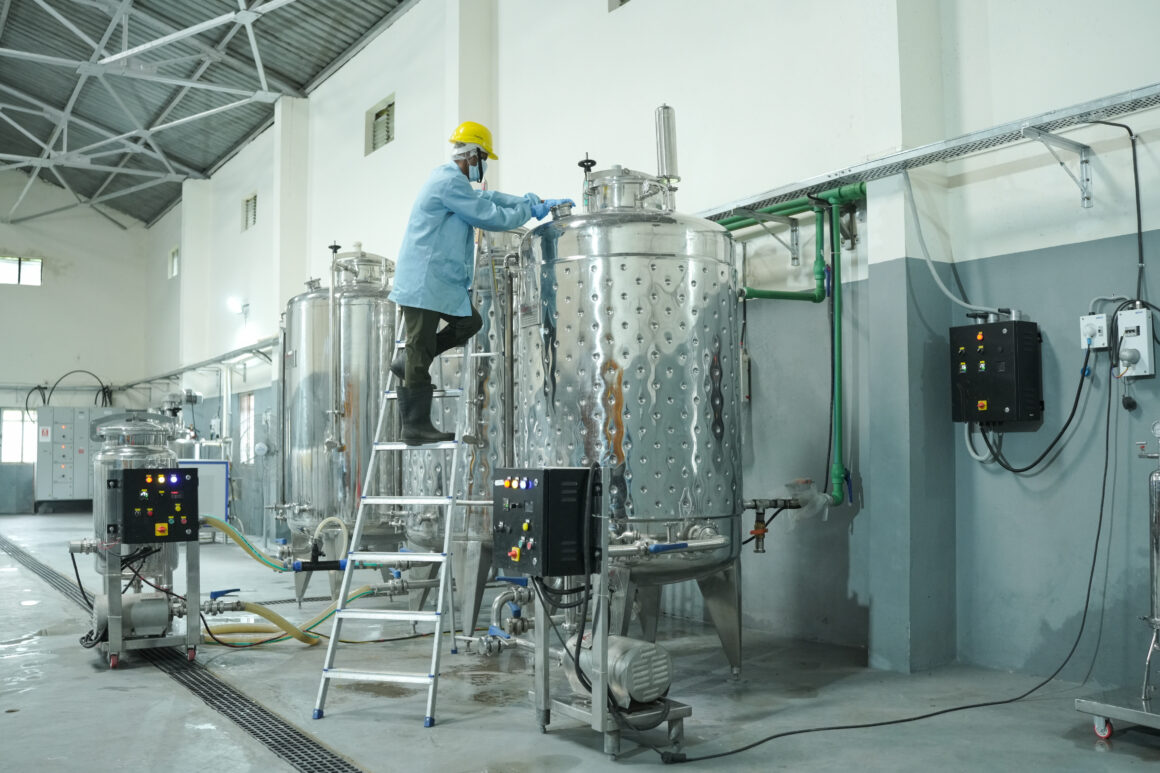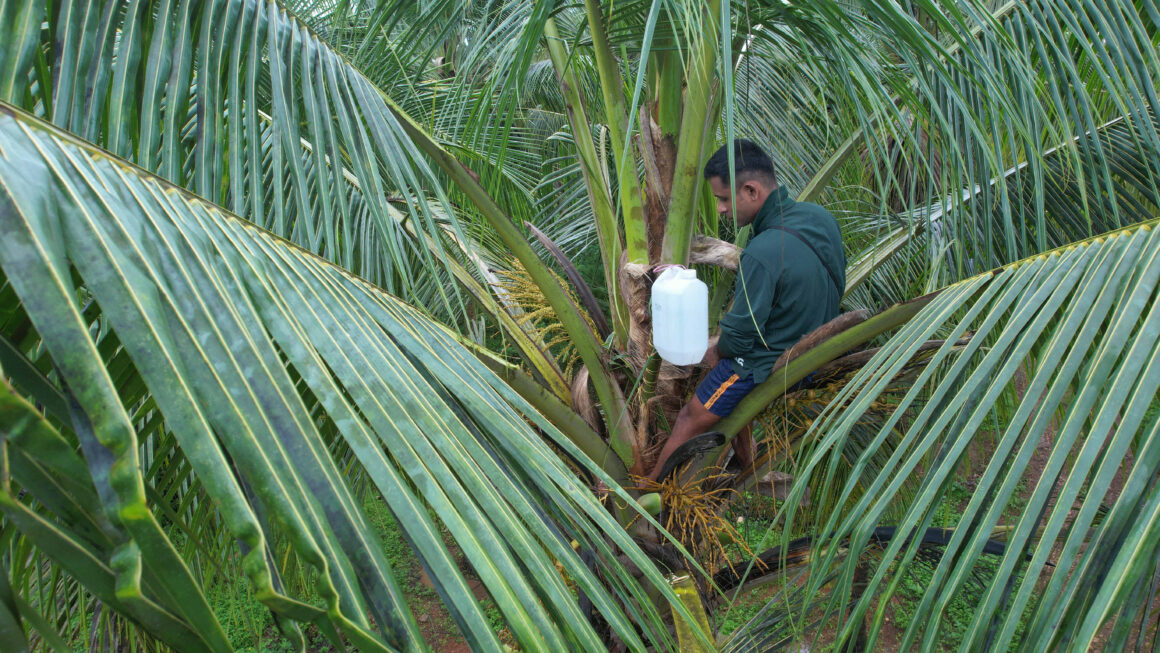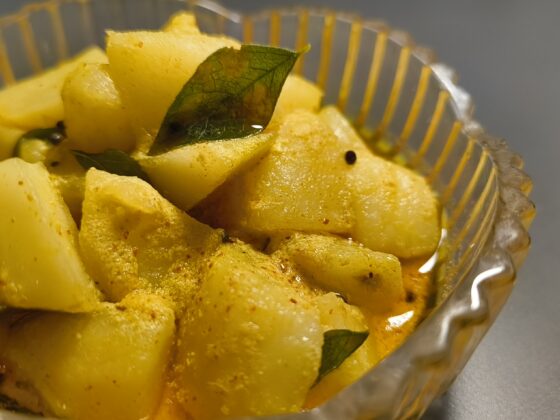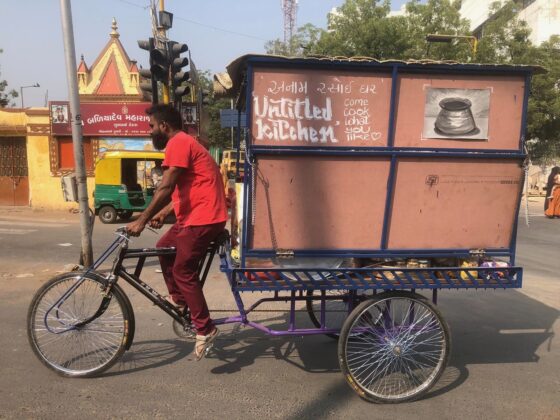Balion Agrofoods—a brand that offers products made from coconut sap—is based in the Sindhudurg district, a Konkan region abundant in coconut palms. Tapping into this local wealth, their mission is to revive the region’s coconut palm sector through natural and clean coconut-based products infused with local ingredients such as ginger and turmeric. These offerings include coconut flower nectar vinegars, coconut flower cider vinegars, sweet chilli sauce, coconut sugar, and many other sauces and condiments.
While Balion Agrofoods’ approach is rooted in tradition, they recognise the need for innovation. For instance, the process of extracting and processing coconut sap requires one to be meticulous, for which they employ tappers with traditional knowledge and expertise. At the same time, they explore and use different equipment and technologies that help automate processes, and increase production.
Founded by Bala Venkatesan and Henrik Haagen in 2020, Balion Agrofoods’ products are entirely natural and traceable1. To ensure this, they lease farmlands in Kudal, and maintain farm health to maintain and grow healthy coconut trees. The coconut sap, locally known as coconut neera, is harvested from the flowers of these trees, and processed to make products such as infused coconut cider vinegars and coconut amino sauces. Since all of these aspects—from improving farm health to harvesting coconut flower sap— require diverse agronomical knowledge and skill, the organisation works with a range of experts, from traditional tappers to qualified agronomists.
The Locavore Bite
TL Bite offers a glimpse into how a partner producer runs their operations, and reflects their core principles and values. The idea is to provide insights into their practices and highlight their positive efforts descriptively. We have identified seven key areas of assessment – origin and source of ingredients, composition and integrity of the products, workforce policies, production practices, community-related initiatives, approach towards preserving or celebrating traditional knowledge and the materials used in packaging. While this assessment may not be entirely comprehensive, we hope it helps you make an informed decision about why you might want to support them, and the ways in which to.
The information below offers you a snapshot of where Balion Agrofoods stands on these parameters. We have put this together based on several rounds of conversation with Bala Venkatesan, Henrik Haagen, Manas Maind, and Debashree Dutta, the team at Balion Agrofoods. Click on a piece of the pie below to find out more.
No Data Found
Why We Love Balion Agrofoods
- Regeneration of soil – Balion Agrofoods aids local farmers in regenerating their farms’ soil health and fertility. Farmlands leased from them are tested for nutritional deficiencies, pest infestation, and treated based on their specific needs with the help of skilled agronomists who are part of the core team.
- Focus on a single ingredient – They explore the full potential of the coconut sap, and are involved at every stage along the way. It begins with farming coconut trees in healthy farmlands, and maintaining these trees until their sap is ready for extraction. The sap’s harvest and storage are also closely monitored, which is then processed to make different coconut amino-based products.
- Traceable and organic – Every ingredient used to make the coconut-sap-based products is entirely traceable to the Sindhudurg district, including the flavouring ingredients such as ginger, turmeric, and red chilli. Their farms and processing units are currently in the process of being organic-certified.
- In-house innovation – Traditionally, the tapping of the sap from coconut flowers was done manually, which involves intense physical labour as well as expertise. For example, tappers from the Konkan region use wooden mallets to beat and extract the viscous sap. While Balion Agrofoods continues to rely on traditional expertise, they also innovate to increase efficiency. For instance, they are currently in the process of automating the harvesting and processing of the sap to enable large-scale production.
Can you tell us more about your in-house innovations? Why is it important, and how does it help traditional tappers in the long run?
“Tapping, a skill passed down over generations, is no longer an occupation of choice. Laborious, complicated, hazardous, even social stigmas attached with tapping combine to make it challenging to recruit and train tappers. At Balion, the demands of ‘industrialising’ a traditional farm, production activity, and developing novel products lead to a continual focus on innovation. We work on improving the efficiency and safety of the tappers—climbing, collection techniques, preservation, pre-processing of the neera; every step is challenged to see how we can improve.
Similarly, for the processing equipment, there were no ready sources, and possible but untested (on coconut sap) options from global vendors were prohibitively expensive. So, our engineering team came up with adaptations, with the support of local vendors, and developed equipment that is cost-effective, scalable, and which supports our processing goals.”
— Bala Venkatesan and Henrik Haagen, Co-founders, Balion Agrofoods

Products We Recommend
Coconut Flower
Cider Vinegar
Coco Amino
1Currently, all of Balion Agro Foods’ products are manufactured at their fully equipped production unit in Kudal. Earlier they had imported several stock keeping units from partner companies in Thailand and the Philippines, which they will continue to sell down until the inventory is depleted.
How to Buy
If you would like to learn more about Balion Agrofoods or try their products, check out their website. If you’re interested in supporting them in other ways, please contact us at connect@thelocavore.in.
At The Locavore, we strive to keep the practices of a producer transparent and honest across all forms of partnerships.




